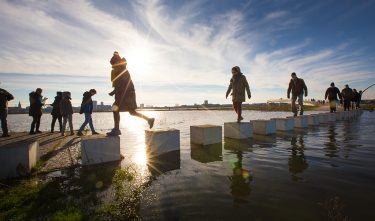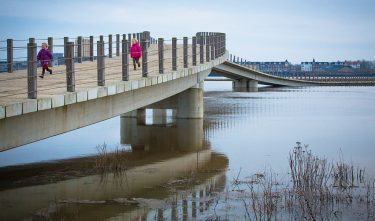How do we deal with the advancing digitisation, the emergence of ‘fake news’ and the need for gathering objective news? Read the column on design for organizations below with these and more pressing questions from jury member and committee chairman in the category 'Best Commisioning': Pieter Aarts.
As a designer I realise every day that our world is rapidly becoming more complex. It is true that this is an enormous cliché, but the fact is that technological developments, disruptive innovation and social demands present an enormous challenge. A challenge, incidentally, that not only applies to designers…
For example, how do we deal with the advancing digitisation, the emergence of ‘fake news’ and the need for gathering objective news? What does the rise in e-commerce mean for shops and how should we carefully handle all the associated distribution? Will we actually produce things differently in the future and will we succeed in applying completely circular models to products and services?
These are just a few examples, but it is clear that these kinds of issues are extremely complex. They include paradoxes, often tackle conflicting interests, have a significant impact and they involve a variety of stakeholders. It is therefore with good reason that we call them ‘wicked problems’. They demand a smart approach and an intelligent designer solution. It is now clear that a classic approach and a ‘standard’ way of working (together) between client and designer can no longer deliver the desired result.
This ‘standard’ approach from the industrial revolution was simple: assess, divide the process into smaller specialist pieces and eliminate as much uncertainty as possible. For decades this led to success for companies and public organisations, but the 21stcentury is desperately in need of a truly ‘new’ way of working (together). Less rigidity, and with more freedom for discovery and doing business together. In short: from ‘managing business’ to ‘facilitating change’.
— “Accept that the world is no longer makeable, embrace uncertainty and focus your organisation accordingly”
 1
1
 2
2
It is essential to allow research, to experiment and to want to (jointly) map out the so-called ‘fuzzy front end’. This can be achieved by joining forces with your (end) users to explore, to dare to allow uncertainty and not thinking in terms of projects but in products and ‘life-cycles’. “Accept that the world is no longer makeable, embrace uncertainty and focus your organisation accordingly”, according to Toni Sfirtis, innovation expert and professor at TIAS Business School.
This is exactly why I get so much energy from the selection and judging of the Dutch Design Awards ‘Best Commissioning’ category. Together with Rita van Hattum, Luuk Ros, Mark van Iterson, Henk Haaima and Roel Stavorinus I help to map out how clients work professionally and structurally with designers. How they make increasing use of design tools and methods and actually dare to choose different ways of working together that lead to sustainable success, regardless of whether this is in a commercial, public or social context.
The great thing is that these are real solutions for real (end) users in a real context, with all the questions that go with them. We are keen to talk about design that is about more than aesthetics and expressiveness alone. Design that has an effect on the client, (end) user and the context. Design that makes an impact. Design that makes the world (a little) better, design that is used in a smart way with an empathetic mentality.
Personally, I am also very happy with the recognition for ‘our’ category from the international jury of the Dutch Design Awards 2018. Cameron Sinclair, former Innovation Lead at AirBnB, suggested: ‘The curious, approachable and democratic way of working between clients and designers is perhaps the ultimate characteristic of ‘Dutch Design’. True collaboration with equality and using design with an eye for the context and the long-term.’
Once again, I am looking forward to our jury day in May and I anticipate a selection of new commissioners that endorse Cameron’s observation!
Pieter Aarts, DDA jury member and committee chairman in the category of ‘Best Commissioning’